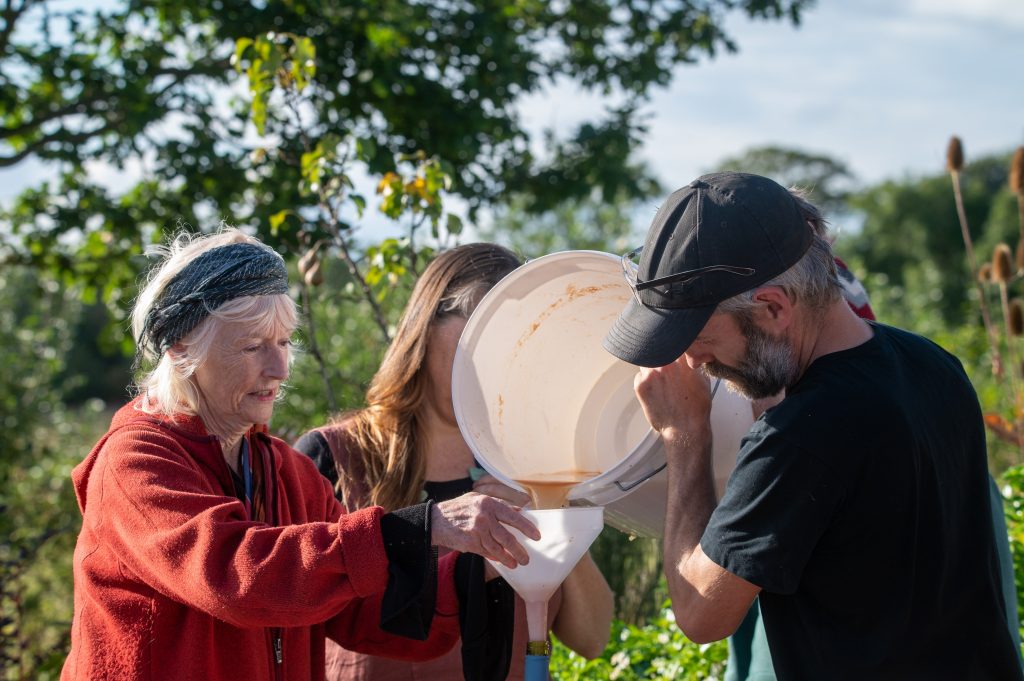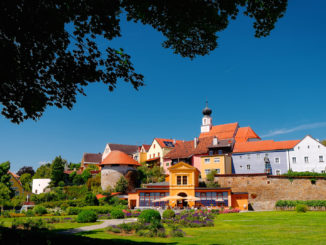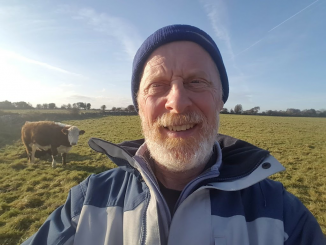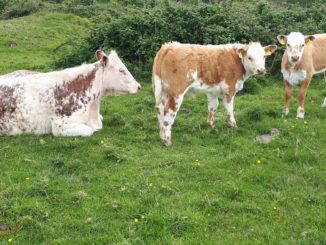
Broadband for all, even in the most remote regions; smart, revitalised villages and towns with hundreds of remote working hubs; a rural youth assembly, significant numbers of public and private workers for rural areas; Local Digital Strategies in administrative regions; and all done in a well-planned way to optimize synergies and transition towards carbon neutrality – it sound like a sustainable rural digitalisation dream. So is it?
Oliver Moore (updated 23.51 11/10/2021)
Well, Ireland’s new rural development policy to 2025, called Our Rural Future, contains all this and more in its 128 pages. It has even assigned Sustainable Development Goals (SDGs) to each of its actions in the appendix. So what was the process to develop this document? What are the details held in its 150+ commitments, and how does this chime with the DESIRA policy proposals as presented to the EU Commission as part of the Long Term Vision for Rural Areas initiative?
Read/download Our Rural Future
The Process
Ireland is recognised as having a “strong tradition” of public consultation, including more recently via citizen assemblies which have built momentum for significant legislative change. Even the current Common Agricultural Policy (CAP) Strategic Plan’s process, stymied as it has been by Covid-19 restrictions, has been assessed in relatively positive terms for Ireland.
For the development of Our Rural Futures, the following process was undertaken, according to Dr. Andrew Forde, Head of Rural Strategy & Social Enterprise Department of Rural and Community Development in Ireland.
▪ 11 Regional consultations with approximately 500 attendees.
▪ 2 workshops with young people on the future of rural Ireland
▪ 2 public “town hall” events
▪ An online survey, with over 1,700 responses
▪ Focus Groups on the implications of COVID-19 for rural areas
Some of these targets differ from what is listed in appendix 2, where “eight stakeholder workshop events” were cited; even adding the two youth workshops named, also on page 118, there is still a discrepancy. (Update – Andrew Forde was in touch to add that there were three additional regional events done in association with the RIa – more info here) Nevertheless, it is also worth pointing out that, as part of the process, the Rural Development Monitoring Committee play a role, and the plan is part of a whole-of-Government approach.The latter means it does not fall under a single Department – rather, the overall Prime Minister’s (Taoiseach’s) Department oversees it.
The Big Picture Targets
Bearing in mind Ireland is a country of just 5 million people, Our Rural Future has some impressive targets with real numbers attached. Big money announcements include include: €2.7 billion in the delivery of high-speed broadband to rural areas; €1 billion under the Rural Regeneration and Development Fund to support ambitious projects to regenerate towns and settlements of < 10,000 people; €2 billion Urban RDF will support larger rural towns; €70 million transitional Programme for LEADER 2021-2022; Up to €100 million to support a Town Centre First approach, including addressing vacant properties and encouraging more town centre living;€108 million to repurpose 80,000 acres of bog (peatland), restore “in the region of” 25,000 hectares (62,000 acres) €50+ million invested in walking and cycling infrastructure.
Noteworthy targets include 400 remote working hubs; 20% home working (mandated) for public sector employees; 400 IDA (Industrial Development Authority) investments by 2024; 19 Advanced Technology Buildings; 80 walking trails; 96 new Community Healthcare Networks; Expand Sustainable Energy Communities from 500 to 1500 by 2030; Retrofit 500,000 homes and install 400,000 heat pumps by 2030.
Broadband everywhere – definitely maybe
As often is the case, the biggest of cash totals were already announced – ‘broadband everywhere’ for example, was already in motion and part of the government’s plans.
Nevertheless, announcing “high speed broadband services to all premises in Ireland through a combination of commercial investment and State intervention in areas where commercial operators acting alone are unlikely to invest” with an emphasis on interventions “primarily in rural locations” sounds impressive (page 31).
The very next paragraph however, begins the qualifications. There we learn high speed broadband will reach “600,000 premises”, “96% of Ireland’s land mass”, “23% of Ireland’s population” and “69% of farms”. These figures are many things, but none of them are 100% of people and places. Ireland has also, in recent decades, ended up allowing an extravagance of remote rural one off housing which will make the final numbers far harder and more expensive to reach.
Facts on the ground however, are really tempering optimism for broadband everywhere. By the halfway mark, out of a proposed 115,000 homes reached by end of year, just 4000 had in fact been connected to high speed. While the pandemic inevitably impacted on the ability to deliver, it also underscored the importance of actually delivering. With most of the student and working population at home, and with unprecedented resources being pumped into a fundamentally restructured society to enable people to study and work remotely, this level of connectivity roll-out is perhaps even less acceptable. The willingness to rewrite and overwrite norms and rules to fast track remote working was there – yet only 4000 homes were connected.
The company doing the roll out nevertheless expects the seven year plan to be completed in five. This however, is another promise and the track record does not necessarily auger well. Indeed, that Ireland has chosen to get a company rather than the state to do this core infrastructural task – when the state globally has been flexing its muscles in an unprecedented manner during lockdown – says much about the depth of neo-liberal thinking in the parties of government there.
Towns and Villages, Targets and Vagueness
The wider policy does really emphasise revitalising rural villages and towns over isolated houses. Commitments include 400 remote working hubs utilising a central booking platform; improved, coordinated data on remote working needs, skills and impacts; mandated (a strong word in Irish policy terms) public sector employees to move to 20% home and remote working by 2021; grants for rural online retailers; Local Digital Strategies in each Local Authority area; free wireless internet via WiFi4EU and improved schools, colleges and adult/workers digital literacy.
Again, however, the details are worth unpacking. While broadband spend has a specific figure – E2.7 billion – when it comes to schools, we get “review on an ongoing basis the availability of broadband services and upgrade schools broadband connectivity, including within the State intervention area where possible.”
Anyone who knows anything about policy implementation knows that “review” and “where possible” mean nothing is actually being committed to.
Using the same logic however, 400 hubs = 400 hubs. And for a country of just 5 million people, this is significant. Similarly, 20% of home or remote working for public sector workers really is 20%.
Our imaginary Olympics for Policy Implementation (OPI ™) has strict awarding criteria for medals:
Real numbers – gold.
Better data – silver.
Under review – bronze.
Elsewhere in the document, there are rurally-focused chapters on employment, towns and villages, participation, leadership and resilience, public services, climate transition, and on agri-food, marine and forestry sustainability, on islands and coastal communities and on implementation.
Clearly, a full roll-out of all aspects of this plan would create a vibrant rural Ireland. However the level of flagrant vagueness, and the simply spectacular missing of targets as evidenced by the broadband reality, does not auger well for delivery.
DESIRA synergies
DESIRA is a Horizon2020 project, with 25 partners, focused on assessing the socio-economic impact of digitalisation in rural areas. DESIRA aims to improve the capacity of society to respond to the challenges and opportunities of digitalisation in rural areas. It does this through a working with 20 living labs around Europe. So how does Our Rural Future stack up, from the perspective of this balanced approach to rural digitalisation?
Certainly Our Rural Future displays significant joined up thinking, with digital visioning and some impressive commitments. It is not mere techno-utopianism, as it recognises the need for synergies, supports and actual changes to make the most optimal use of broader broadband availability. In this, it chimes well with DESIRAs design principles for digitisation.
The basic conditions of access, human capital, and capacity are all taken into account by the policy; SDG relevances have their own appendix and the different needs for different rural context is noted (village, town, farming, forestry, island, coastal marine and even also on a regional basis).
For DESIRA, digitalisation is sustainable when it focuses on inclusion, digital ecosystems, governance models and policy tools – these too are referenced in Our Rural Future.
There is still the chasm between document and delivery, between targets and tangible implementation. This is the unfortunately unavoidable elephant in the room with poor broadband connectivity.
Conclusion
On first glance, there is much to recommend in Our Rural Future from a DESIRA perspective.The main concern here however is not whether the Irish government document says all the right things – it does. What’s of concern is the gap between the commitments to really spend time and money, and the aspirations which if implemented will make the policy genuinely sustainable.
The period up to 2025 will define whether some of the silver and bronze medals can be upgraded to gold.
This article first appeared on the DESIRA website. DESIRA is a Horizon2020 project, with 25 partners, focused on assessing the socio-economic impact of digitalisation in rural areas. DESIRA aims to improve the capacity of society to respond to the challenges and opportunities of digitalisation in rural areas. Oliver Moore of ARC2020 also works with DESIRA on communications.
More on Rural, on Ireland and on DESIRA
Western Balkans | Balkan Rural Parliament Adopts Declaration
Flagrant Vagueness | Commission Launches a Vision Without a Strategy
Western Balkans | Reviving Rural Areas & Moving Towards EU Integration
Rural Semester as a Tool to Deliver a Truly Holistic Policy for Rural Areas
Ireland
Letter From The Farm | Health, Husbandry & High Quality Meat
Organics, Agroforestry, Eco-schemes – for a Just Transition in Ireland
Hidden Formulas and Agri-Media – Can we Find a Fair CAP in Ireland?
DESIRA
CAP, European Green Deal and the Digital Transformation of Agriculture
Rural Dialogues | The Three Conditions of Sustainable Rural Digitalisation





